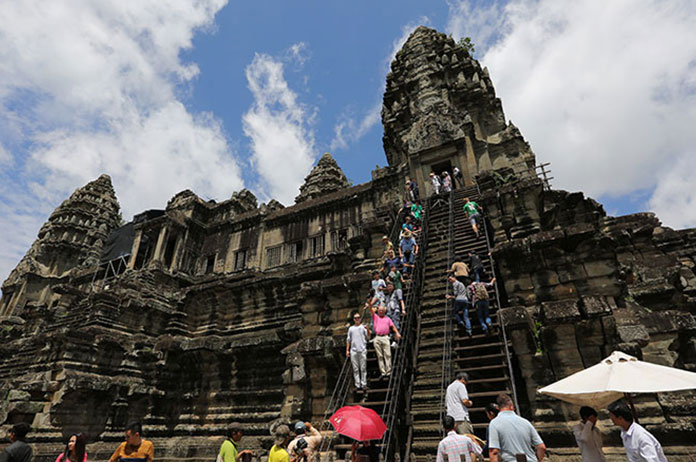Next Asean Meeting On Tourism Qualifications To Be Held In Cambodia

The second edition of a conference on the mutual recognition of professionals in the tourism industry across Asean member states will take place in Phnom Penh’s Sokha Hotel on June 20-21.
The first iteration of the International Conference on Mutual Recognition Arrangement on Tourism Professionals was held in Indonesia in 2016. The Mutual Recognition Arrangement on Tourism Professionals, also known as MRA-TP, was adopted in 2009 as a key initiative to support the establishment of the Asean Economic Community, with its main objective being to facilitate the mobility of certified tourism professionals across the Asean region.
This year’s edition will revolve around the topic of boosting human resources in the tourism industry to aid the sustainable development of the sector, according to Try Chhiv, deputy director at the Ministry of Tourism. Four topics will be discussed in depth at the conference, he said: challenges in providing quality training programmes; the Asean MRA-TP and other legal frameworks; recognition of Asean qualifications; and future goals in training the sector’s workforce.
The conference is expected to attract over 1,000 attendees, and will be joined by speakers from a number of regional and international agencies, including the United Nations Development Programme, the Asian Development Bank, and the International Labour Organization, Mr Chhiv said. Cambodia was chosen to host the conference upon request from the Asean Secretariat and member states, Mr Chhiv said, pointing out the Kingdom is one of the most successful nations in the region when it comes to implementing the MRA-TP, as well as a model for fellow Asean members in terms of the development of its tourism industry.
“We will share our experience and achievements in developing our tourism industry,” Mr Chhiv said. “What we expect to get out of this conference is to find common ground among all participating countries when it comes to the direction we should take to develop the tourism sector in the region, particularly drafting effective policy to face fiercer competition abroad and managing the rapid progression of technology in the sector,” he said.
Mr Chhiv stressed that the skills demanded in the tourism market change constantly due to the rapid development of technological advancements in the digital era. To develop the sector in a sustainable manner, tourism officials and the private sector need to work together to create effective training programmes for tourism professionals, he said.